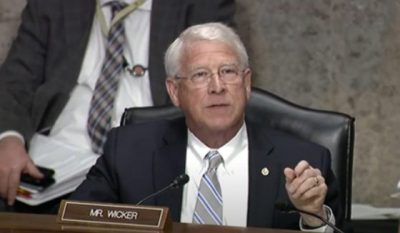
U.S. Senators Roger Wicker, R-Miss., and Tim Kaine, D-Va., along with U.S. Senators Tim Scott, R-S.C., Chris Coons, D-Del., and Thom Tillis, R-N.C., today reintroduced the “Reaching America’s Rural Minority Businesses Act of 2021,” which would authorize the Minority Business Development Agency (MBDA) within the Department of Commerce to establish up to 10 business centers at Historically Black Colleges and Universities (HBCUs) to serve rural and underserved communities. MBDA’s existing Minority Business Centers are concentrated in select urban areas in 18 states, leaving vast swaths of the country without easy access to MBDA’s services.
“The Minority Business Development Agency has been a lifeline for many minority business owners and entrepreneurs seeking to start and grow their businesses,” said Senator Wicker. “This bill would help extend these resources to create jobs in rural America by leveraging the expertise and innovation of our nation’s HBCUs.”
“Especially in light of the inequality we’ve seen amid COVID-19, we have to update our federal policies to ensure minority-owned businesses in rural areas have equal access to critical federal resources,” said Senator Kaine. “I’m proud to help lead this bipartisan effort that would bring the expertise of MBDA centers to our HBCUs and give more rural minority-owned businesses the tools they need to succeed.”
“As a former business owner, I find it crucial that we deploy resources to our young people – especially in minority communities – to ensure that they have access to opportunity,” said Senator Scott. “I am proud to help draft and cosponsor the Reaching America’s Rural Minority Businesses Act, and I look forward to seeing more minority-owned businesses across the nation.”
“As we recover from the COVID-19 pandemic, Congress must deliver comprehensive relief to small businesses and ensure those efforts reach underserved communities,” said Senator Coons. “This bill would allow the Minority Business Development Agency to utilize the reach and relationships of HBCUs like Delaware State University to deliver the tools for growth to minority-owned small businesses. This is one of many ways we can prioritize equity and access as we chart the economic recovery.”
“This bipartisan legislation would be a big win for rural and underserved communities in North Carolina,” said Senator Tillis. “North Carolina’s HBCUs have the potential to become education, support, and training hubs for the rural minority businesses in the communities they support, and this legislation makes long-term future success possible for so many businesses and is a great way to focus on each individual need. I am proud to have worked on a bipartisan basis to re-introduce this legislation and applaud the administration for their continued investment in North Carolina’s HBCUs and our rural communities.”
The legislation would authorize $10 million a year for the creation of up to 10 rural business centers at HBCUs. Eligible institutions would not have to be located in a rural area, but would need to demonstrate how they would serve a rural or underserved minority population.
HBCUs would also be able to form a consortium with other HBCUs or institutions of higher learning, which would strengthen the capacity of an established center and broaden its outreach.
The rural business centers would provide education, training, and technical assistance to rural minority businesses. Specifically, the centers would assist with:
- Adoption of broadband internet service, digital literacy, and e-commerce;
- Promoting manufacturing in the United States;
- Meeting gaps in the supply chain of critical supplies and essential goods and services;
- Improving transportation and logistics;
- Promoting trade and export opportunities; and
- Facilitating entrepreneurship in rural areas.
When the legislation was introduced last Congress, it was endorsed by all of Mississippi’s HBCUs, including Alcorn State University, Coahoma Community College, Hinds Community College-Utica, Jackson State University, Mississippi Valley State University, Rust College, and Tougaloo College.
Click here to read their statements of support for the legislation.
Click here to read a one-page summary of the legislation.
Click here to read the full bill text.
Press Release
5/20/2021









